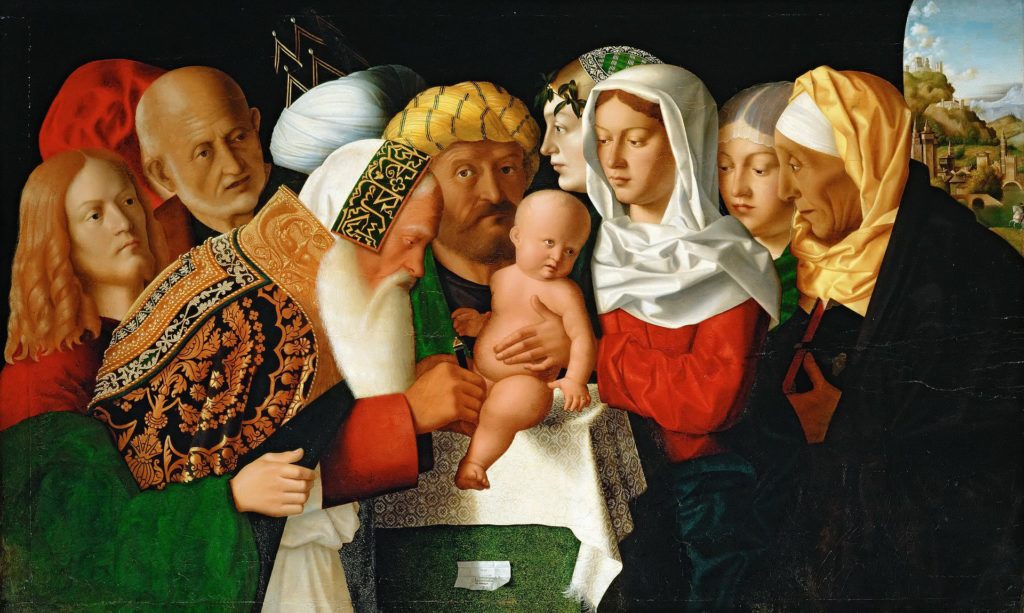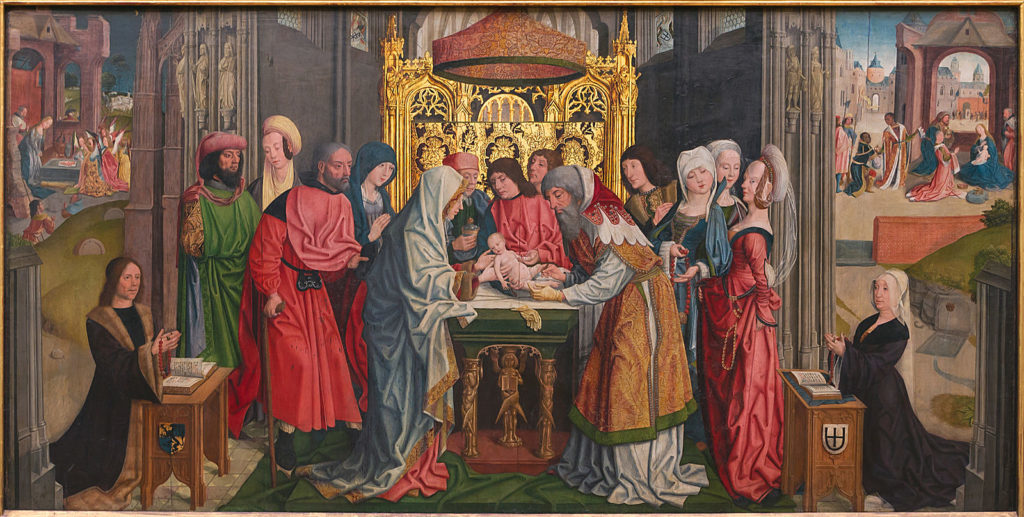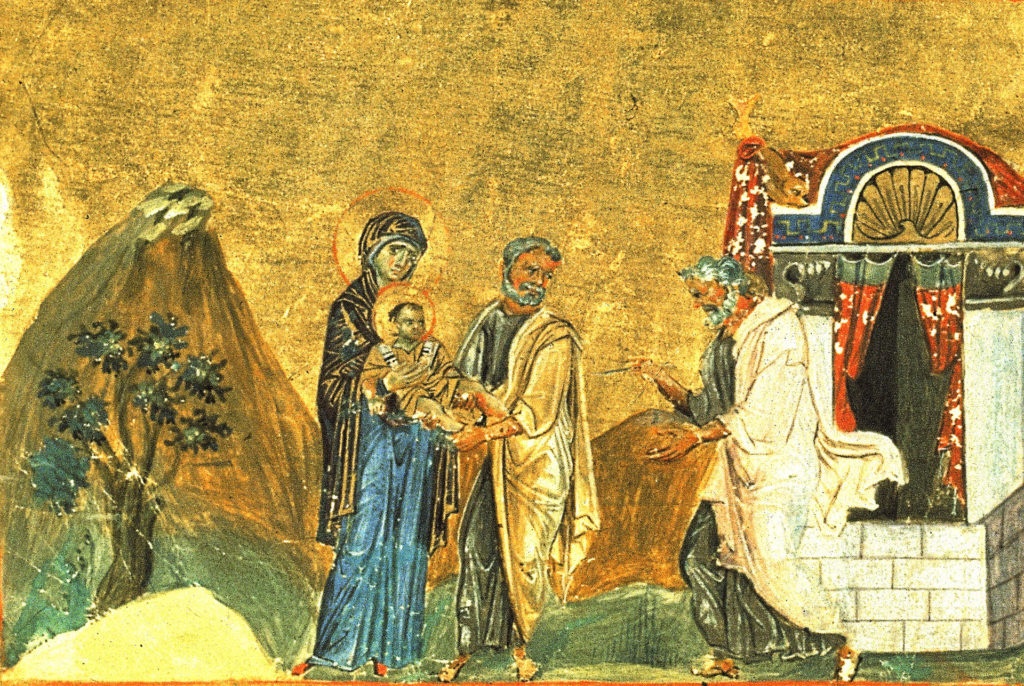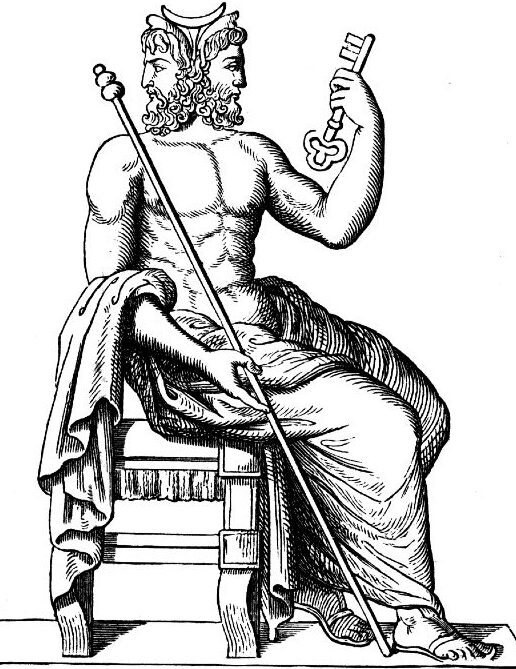The History of January 1st for New Year’s Day goes something like this:
The Romans dedicated the 1st day of January to the god Janus — a god of the gates or doors, a god with two faces, looking backward and looking forward.
Janus was the god of beginnings and transitions in Roman mythology, and presided over passages, doors, gates and endings, as well as in transitional periods such as from war to peace. He was usually depicted as having two faces looking at opposite ways, one towards the past and the other towards the future. (Greek Mythology)
Janus also is the god “who holds a staff in his left and a key in his right,” “the one who holds the key (clavigerus),” and the one who is “the gatekeeper of the heavenly courts (coelestis ianitor aulae).” (Hugh Nibley, One Eternal Round pg 268)
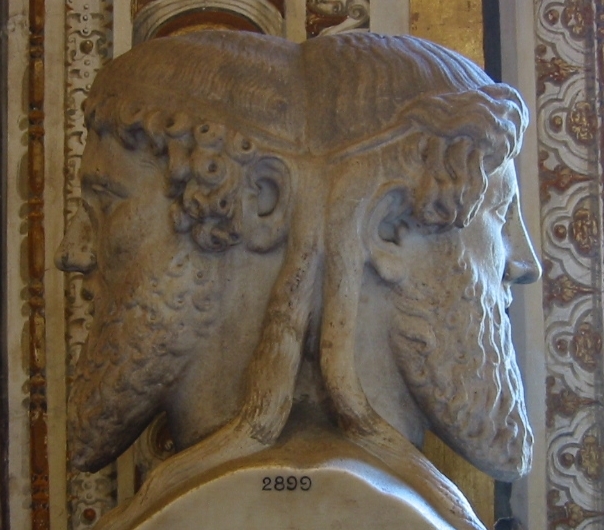
Two-Faced Janus God
Then when Julius Caesar was murdered, the Senate voted to honor him on January 1.

Julius Caesar
Some countries celebrated the New Year in the Spring — on the Spring Equinox and March 25th — celebrating the Annunciation of Jesus (when the Angel Gabriel informed Mary of her divine calling). Spring is also another time that may be more appropriate to begin a new year.

Annunciation of Christ
The everlasting covenant of circumcision
So, here we go. We have another everlasting covenant. Covenants often have signs and tokens attached to them. Sometimes they are symbolic of birth, receiving a new name. When Abram was 99 years old, God gave him a new name — Abraham, telling him that he would be the father of many nations — that he will be fruitful and multiplied. Thus the birth of many nations.
No longer will you be called Abram; your name will be Abraham, for I have made you a father of many nations. I will make you very fruitful; I will make nations of you, and kings will come from you. I will establish my covenant as an everlasting covenant between me and you and your descendants after you for the generations to come, to be your God and the God of your descendants after you. (Genesis 17: 5-7, NIV)
This is when religion becomes interesting. When we read about covenants and promises, you can’t understand this with your mortal mind because it makes no sense. But with your magical spiritual soul and a connection to another life, and life to come, you can believe that the covenants you make with God have power. I find that the act of circumcision –which is to cut around the obvious male genitalia providing a necessary part of his offspring — is in a complete circle. Sorry, men, but you have to have something (women never forget their multiple labor and birthing experiences.)
This is my covenant with you and your descendants after you, the covenant you are to keep: Every male among you shall be circumcised. You are to undergo circumcision, and it will be the sign of the covenant between me and you. For the generations to come every male among you who is eight days old must be circumcised, including those born in your household or bought with money from a foreigner—those who are not your offspring. Whether born in your household or bought with your money, they must be circumcised. My covenant in your flesh is to be an everlasting covenant. (Genesis 17: 10-13)
As I noted in my post about parity covenants, the word covenant in Hebrew is “to cut a covenant” (“karat berit”)– which certainly applies to circumcision.
Now, not to leave out Abraham’s wife, Sarai — She has a birth moment and new name and becomes a mother of nations.
God also said to Abraham, “As for Sarai your wife, you are no longer to call her Sarai; her name will be Sarah. I will bless her and will surely give you a son by her. I will bless her so that she will be the mother of nations; kings of peoples will come from her.” (Genesis 17: 15-16)
As the Bible reads, Abraham laughed when God told him his wife would bear a child. Big mistake, yet it shows how comfortable Abraham is with his God. “Abraham fell facedown; he laughed and said to himself, “Will a son be born to a man a hundred years old? Will Sarah bear a child at the age of ninety?”
